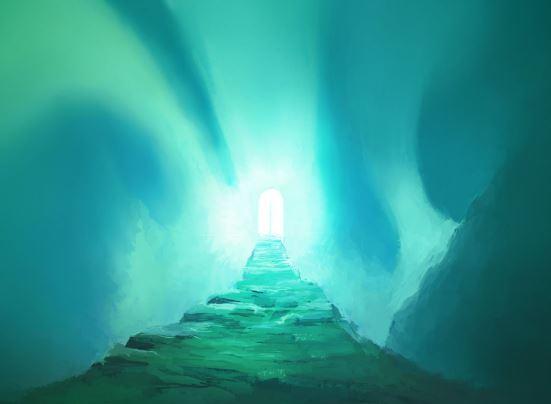Valhalla

Walhalla (or Valhalla in Old Norse: Valhǫll, meaning "hall of the slain") is this epic, golden hall in Asgard, ruled over by Odin, the Allfather.
Here’s the poetic breakdown:
-
It's where chosen warriors, known as einherjar, go after dying gloriously in battle.
-
These warriors don’t just chill in peace—they train daily, fighting each other to hone their skills for Ragnarök, the end-of-the-world battle.
-
By night, they feast in grandeur, drinking mead from the udders of a magical goat (Heiðrún) and eating meat from a boar that regenerates daily (Sæhrímnir).
-
The hall is massive, with a roof made of golden shields and 540 doors, through which 800 warriors can march abreast. Yeah, Odin doesn't do subtle.
It’s not your typical paradise—it’s more like heaven for hardcore warriors. Glory, honor, eternal battle, and endless feasting.
🛡️ Valhalla's Purpose in Norse Myth
Valhalla isn’t just a reward—it’s part of Odin’s long game. Odin doesn’t just want warriors for the sake of it; he’s preparing an elite army for Ragnarök, the apocalyptic battle where gods and monsters clash, and many gods (including Odin himself) are fated to fall.
To this end, Odin sends out the Valkyries—mystic warrior maidens—to choose who dies in battle and who gets the honor of joining him in Valhalla.
🩸 The Einherjar – Warriors of the Afterlife
-
Einherjar means "lone fighters" or "those who fight alone"—which is kind of poetic, because even in glory, there's solitude in battle.
-
Every day, they fight and die in the training yard, only to be resurrected by evening to feast.
-
This endless cycle of battle and celebration isn’t torment—it's the ideal existence for a Norse warrior.
🏰 Inside Valhalla
-
Roof: Made of gold shields.
-
Walls: Spear-shafted and decorated with battle gear.
-
Doors: 540 of them, wide enough for 800 warriors each to exit at once—because Odin's prepping a cosmic D-Day.
-
Feast: Served by Valkyries, the einherjar drink mead that flows endlessly and feast on regenerating meat.
-
Entertainment: Epic storytelling, poetry, songs of past battles—probably metal in spirit, even before metal existed.
⚔️ Valkyries – Choosers of the Slain
-
Half of those who die in battle go to Valhalla; the other half go to Fólkvangr, ruled by Freyja, goddess of love and war.
-
Valkyries aren’t just escorts—they’re also sometimes lovers, shieldmaidens, and symbols of fate (wyrd).
-
They descend from the skies, clad in armor, choosing who will die and who will live.
🔥 Ragnarök – The Ultimate Purpose
Valhalla is ultimately a preparation ground. At Ragnarök:
-
The einherjar, led by Odin, march out of Valhalla to fight the giants, Hel’s undead army, and the chaos beasts.
-
Odin battles Fenrir, the monstrous wolf (spoiler: Odin dies).
-
It's not a story of victory, but one of honorable resistance against fate.
🧠 Symbolism
Valhalla isn't just about war—it's a psychological paradise for a culture that revered courage, endurance, and honor in the face of inevitable death. It’s not heaven in a moral sense—it’s heaven for those who defy death with valor.

